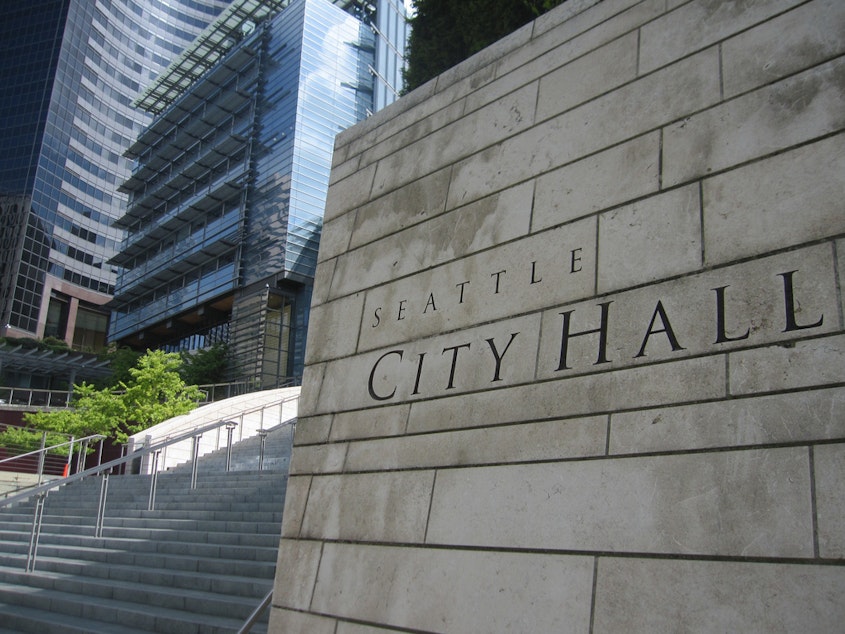Seattle City Council votes to repeal 2 loitering laws

The Seattle City Council voted unanimously Monday to repeal two laws over concerns about disproportionate impacts on Black and Indigenous people and other people of color.
The council voted to remove the crime of drug traffic loitering and prostitution loitering from the city's criminal code.
The first ordinance allows officers to arrest people suspected of soliciting drugs in public without evidence drugs are present.
The second allows people suspected of being sex workers to be arrested for loitering.
“We know that loitering laws have a deep and harmful racist history so these bills do offer an important first step,” said Councilmember Tammy Morales.
Council summary documents about the laws state that the crime of drug traffic loitering was added to the city’s municipal code in 1992 during the "War on Drugs."
“Since that time, such laws have been shown to have a disproportionate impact on communities of color and negatively impact already vulnerable populations without improving public safety,” the document states.
Sponsored
Similarly, council documents say the crime of prostitution loitering targets populations that are already at high risk of abuse and exploitation and has been shown to have disproportionate impacts on both cis- and transgender women of color.
Councilmember Andrew Lewis is one of the sponsors of the repeal effort. He said the laws are so unjust they can’t even be called outdated.
"To do so implies that these ordinances had their purpose and had their day and new realities have made them irrelevant,” Lewis said during Monday’s council meeting.
“Fax machines are outdated. These laws were never appropriate. They were wrong when they were enacted and they're wrong now."
Councilmember Alex Pedersen placed the repeal effort in the context of ongoing protests over long-standing police violence against Black people.
Sponsored
“The brutal killing of George Floyd by Minneapolis Police, which followed countless other wrong acts and centuries of racism, have refocused our nation’s attention on the need to prevent disproportionate impacts of our law enforcement system on Black, Indigenous, and other people of color,” Pedersen said.
“And repealing problematic laws on our books, such as these loitering laws, that’s a small but important step that this city council can take.”
According to the City Attorney’s Office, they haven’t charged either loitering offenses since 2018, with the exception of a single filing they’re working to withdraw.
Still, in a statement, City Attorney Pete Holmes congratulated council members on the repeal and said he hopes other jurisdictions will examine their own criminal loitering laws.
During public comment before the council voted, many people spoke in favor of repealing the laws, including representatives of local advocacy groups.
Sponsored
“Loitering laws are absolutely vehicles for racial, gender and class-based profiling and discrimination,” said Savannah Sly with the Sex Workers Outreach Project.
Sly and others also urged council members to go further and decriminalize sex work in the city entirely.
Very few people spoke against repealing the loitering laws. One person who did said they were a survivor of sex trafficking and expressed concern that it's not the law that's faulty but the application of the law.
They argued sex workers should not be targeted, but buyers and traffickers should be pulled over for loitering and prosecuted.




